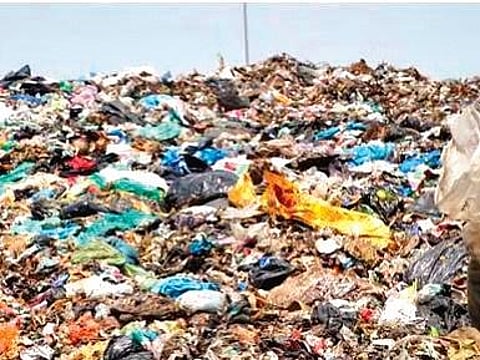

THIRUVANANTHAPURAM: Even as the LDF government is marching ahead with its plans for waste-to-energy (WTE) plants in Kerala, a former member of the Supreme Court-appointed committee on waste management, Renjith Devaraj, warns that besides highly toxic dioxins and furans expelled by such plants, the solid waste generated in the state would not have enough calorific value to produce energy.
“And the low temperature for combustion will not even take care of the dioxins and furans,” he said.
Renjith, a writer on environmental issues, is a member of one of the three residential associations in Okhla, South Delhi, that is involved in a protracted Supreme Court case against the country’s largest WTE plant, run by Timarpur Okhla Waste Management Co Ltd. “The government and private companies are deceiving the public in the name of technology,” Renjith told TNIE.
The Kerala government in a March 07, 2020 order decided to set up WTE plants in seven districts, which brought the controversial Zonta Infrotech into the picture. A study by the Shriram Institute for Industrial Research in 2017 showed that between 55-60% of municipal solid waste in Delhi is biodegradable, whose calorific value does not exceed 1,324 kcal/kg.
Self-sustaining combustion requires a calorific value of 1,800 kcal/kg. The study revealed that plants in Delhi had half the calorific value of genuine refuse-derived fuel (RDF) -- produced from solid waste with consequences of toxicity of emissions.
“The main reason for the failure to achieve the stipulated temperature is bottom ash, largely consisting of partially burnt plastic, unburnt plastic and organic materials such as wood and rags. In a state like Kerala with six months of rain, the challenges will be more,” he added.
The study refers to the stack-emission monitoring by the Central Pollution Control Board (CPCB) and IIT Delhi in 2020 at the Timarpur Okhla plant on the direction of the National Green Tribunal (NGT) that showed dioxin and furan values exceeding permissible limits. According to the study, accidental or occupational exposure to dioxins can affect growth, reproduction and the immune system. More disturbingly, they also cause cancer.
Exposure to furans can result in liver problems and affect the immune system. A study by the Delhi Pollution Control Board also found dioxin and furan emissions at the plant exceeding prescribed limits.
“When there is not enough calorific value for self-sustained combustion, low-temperature combustion is employed. For a state like Kerala, this technology is unsuitable for its environmental and public health,” Renjith cautioned.
REASONS